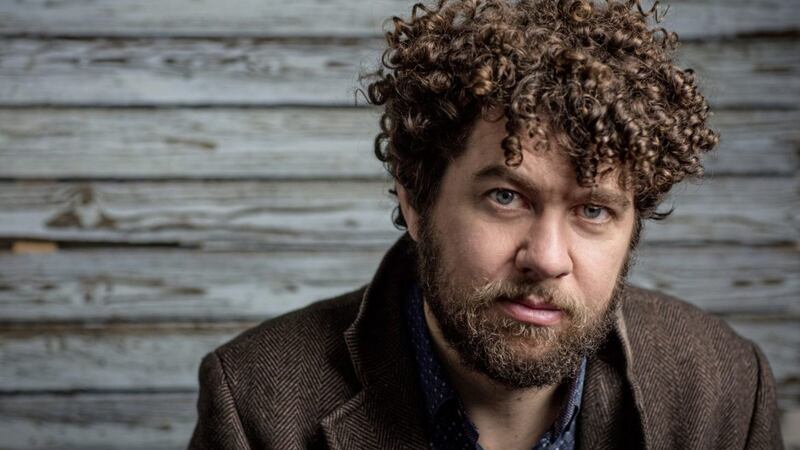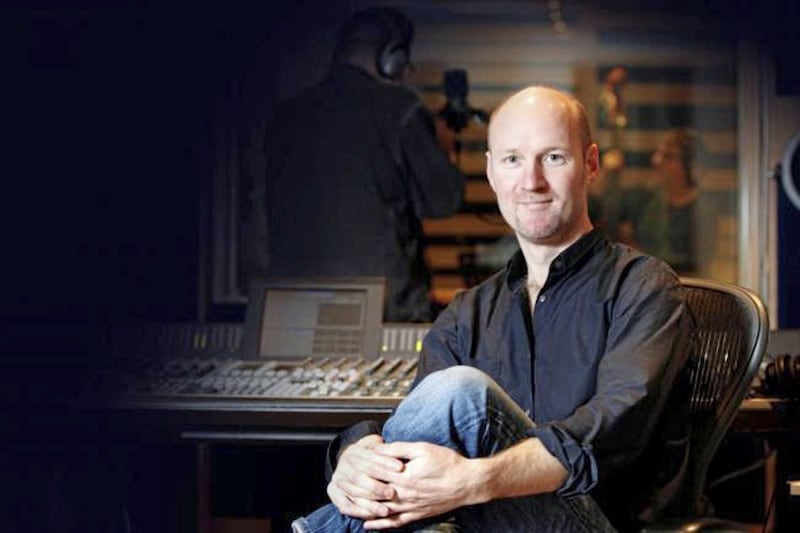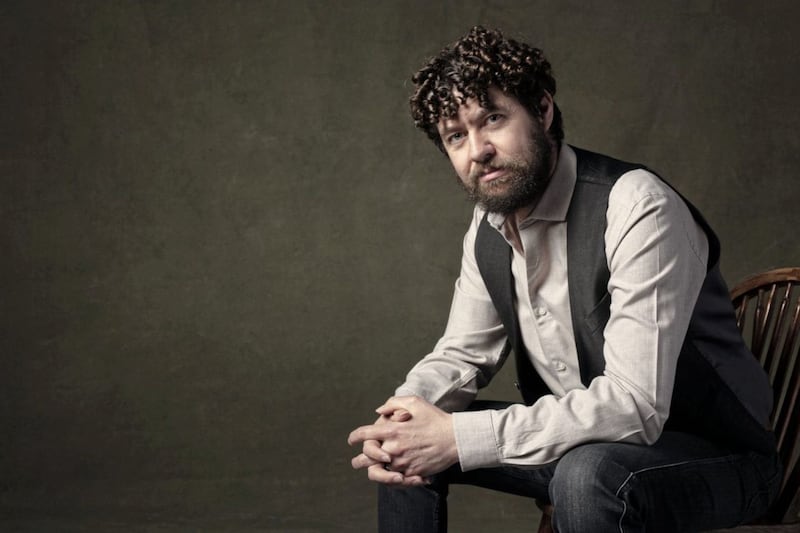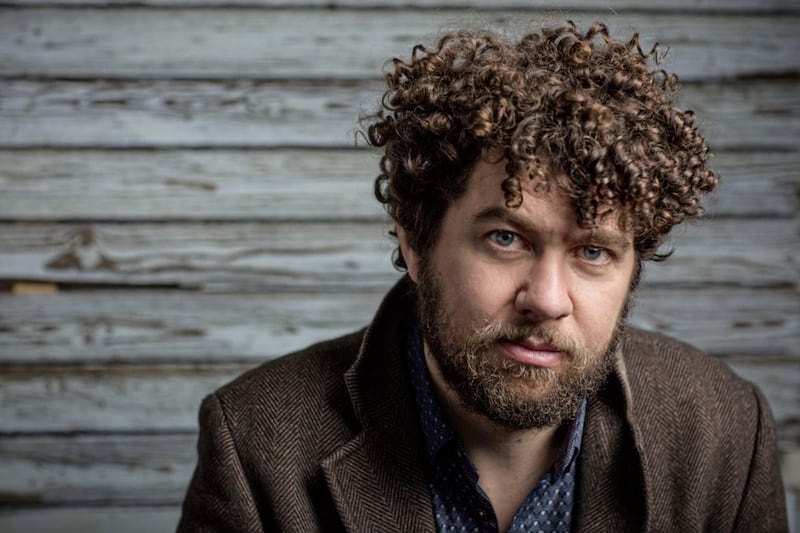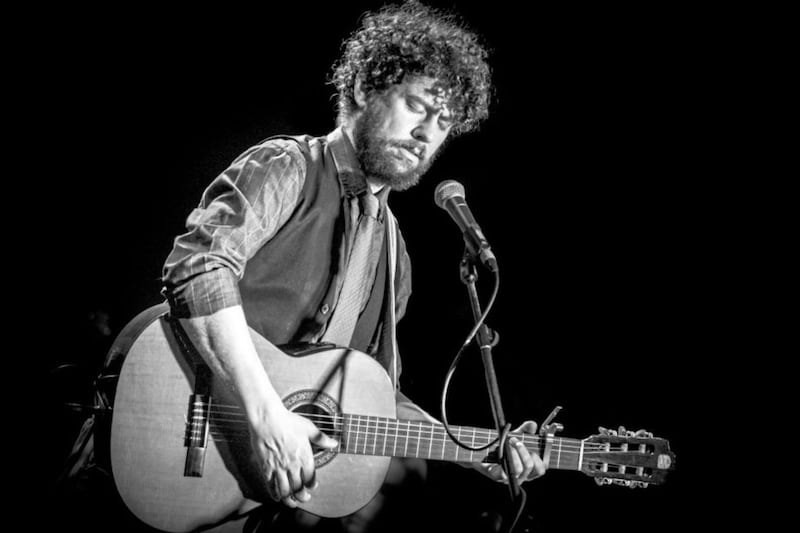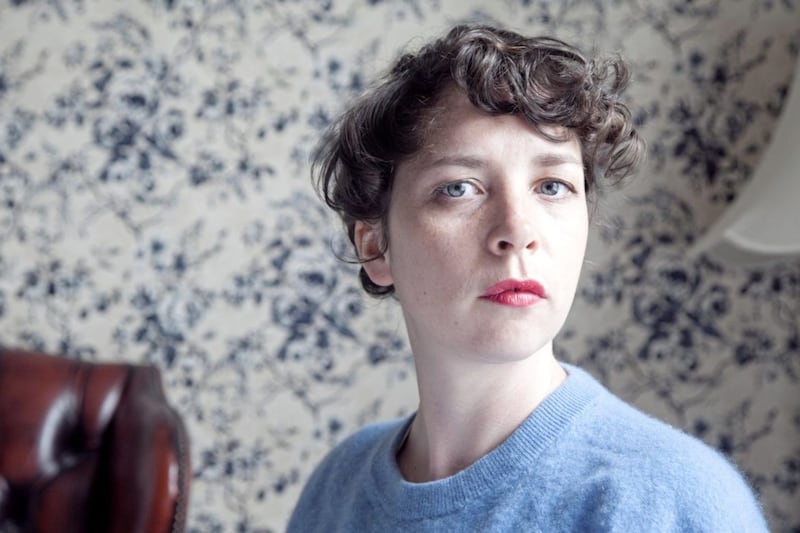HE DESCRIBES his songs as "fresh air to an unhealed wound" and, certainly, when audiences hear Declan O'Rourke's "extraordinary true tales" in the Chronicles of the Great Irish Famine, they seem to feel a kind of medicinal pain.
In fact, more often than not, he has members of his audience crying real tears – especially during the first song in the album, Poor Boys Shoes, which O'Rourke will sing live in Belfast for the first time this weekend.
For this, the Irish troubadour, who released his Chronicles to standing ovations across Ireland last year, makes no apologies, claiming Irish people "have to be reminded of what they have overcome".
Fresh from collecting the Best Original Folk Track award for Chronicles song Along the Western Seaboard, at the inaugural RTÉ Radio 1 Folk Awards last month, the Galway-based singer is looking forward to his visit at The MAC and singing the entire compilation.
It has taken 15 years to put the Famine songs together, but it has been the proverbial labour of love for O'Rourke who has been among the A-list entertainment at US Oscars parties and Glastonbury and has also performed for three (Irish) presidents – although, notably, not for the Pope. He turned down an invitation to sing for Pope Francis in Dublin this summer, citing "a moral dilemma" over abuse scandals involving the Catholic Church.
There is also a personal element to what might just be his magnum opus to date, as the Chronicles project first took root after the award-winning songwriter discovered his grandfather – a painter, of "real dreamy-looking, west-of-Ireland stuff" – had been born in an Irish workhouse.
"I always knew my grandad had a kind of mysterious past, but it was only after he died in 1980 that my mother and some of her siblings tried to find out more about his background," O'Rourke explains. "Then, in 2000 we found his birth certificate in the records office and it listed his birthplace as the workhouse in Gort, Co Galway – which was about 20 minutes' drive from where he grew up.
"He was born in 1916, so it wasn't Famine times, but this discovery made me determined to find out more and the next thing, I stumbled upon a book in a Dublin book store – in the bargain bin, as it happened – and it was all about the workhouses of Ireland.
"I started reading a chapter about a man who had carried his wife from the workhouse to their old home, mile after weary mile, and was discovered next morning dead, his wife's feet held to his breast as if he was trying to warm them...
"The hairs stood up on the back of my neck at that story – the inspiration behind Poor Boys Shoes – and I really connected with the beauty, the power and the sadness of it. You learn empathy from a story like that."
More than that, the story led to what became a "belated history lesson" for O'Rourke, who says he didn't learn much about the late-1840s Famine while at school.
"We didn't know any of this; it was like a footnote in history when we were at school and the Famine was just brushed over," he says. "People were afraid to delve into the history for a long time because it was so explosive and stirred up so many passionate feelings.
"I think the Famine is a wound still not healed and it lurks under the surface, so we need to take these things apart. I wanted to look at it in a compassionate way, in a way to help us to heal."
Now the proud father of an eight-month-old baby boy with film stuntwoman wife, Eimear O'Grady, the family tragedies he found in John O’Connor’s book, The Workhouses of Ireland, resonate even more – although O'Rourke admits it came as something of a relief when he finally finished his Famine collection.
"In way, I knew it would take so long because it was academic subject matter and I had to get it right," he says. "That meant I had to read an awful lot and make sure I wasn't leaving important things out. I did it a little at a time and it was enjoyable for that reason, but at the same time, I wondered, 'Is this ever going to end?'
"When I did eventually bring it to a close, I rang up a friend and told him I felt really sad and couldn't figure out why, but he hit the nail on the head when he said said I was feeling 'the empties' as the whole thing had been part of my life for so long."
Born in Dublin, the famed Galway musician – who has been open about his struggles with anxiety and panic attacks in the past – was given his first guitar by a priest in Kyabram, south Australia.
His family had emigrated to the country when the recession hit Ireland, but returned home at the end of 1990 – largely, it seems, because of his mother's costly phone calls to family back home.
"My mam had an older brother in Australia and Dad was a carpenter and his skills were needed at the time," recalls O'Rourke, whose song Galileo has been recorded by Eddi Reader and Josh Groban and is a favourite of Paul Weller. "But my mother – who is from a family of 15 – was running up these massive phone bills. One year we were there, we got a phone bill for 2,000 Australian dollars just for one month. That was ultimately why we returned to Ireland!"
His sojourn Down Under, however, led to his debut, double platinum album Since Kyabram which is being re-released next Friday and which will be available on vinyl for the first time, as well as on CD.
"It's a bit of nostalgia and I love nostalgia," admits O'Rourke, who developed early performance confidence at "big family gatherings" where everyone was expected to produce a party piece.
"Everyone was expected to do something, so we all got over any kind of stage fright or nerves very quickly," he says. "It was natural to always have something you were working on for the next time, so I fell into that pattern from an early age.
"I never went to college, though, as I grew up in an under-funded area and the opportunities weren't really there. It was a time when lots of us just made our own way and you hooked up with other people who were doing the same thing and you hope it worked out in the end."
Now a committed "workaholic" he spends his free time "working and writing more songs" – but isn't sure if he will ever embark on another project like the Chronicles of the Great Irish Famine.
"I love what I do, so I keep doing it and that means a lot of work," he says. "I can't foresee spending another 15 years on one topic, but you never know. I never did meet up again with the priest who gave me that first guitar, but I heard he left the priesthood a few years later and got married and I'm very happy for him. You never know what way life goes."
:: Chronicles of The Great Irish Famine is at The MAC in Belfast this Saturday (themaclive.com).
